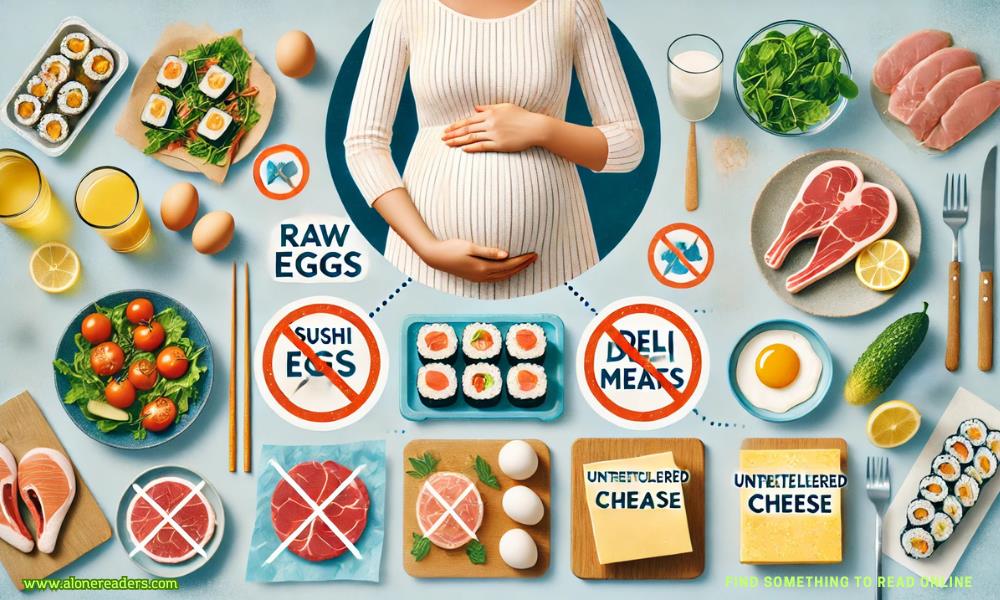
Pregnancy is a critical period that demands extra attention to diet and lifestyle choices. Proper nutrition plays a pivotal role in the health and development of your baby, as well as your own well-being. While many foods are beneficial during pregnancy, some can pose risks that may lead to complications. This comprehensive guide highlights the top foods to avoid during pregnancy and explains why they should be limited or eliminated from your diet.
Consuming raw or undercooked seafood, including sushi and sashimi, can increase the risk of foodborne illnesses such as listeriosis and parasitic infections like toxoplasmosis. These infections can harm both the mother and the developing baby, potentially leading to miscarriage, stillbirth, or severe developmental issues.
Certain fish contain high levels of mercury, a toxic metal that can affect the baby's developing nervous system. Pregnant women should avoid fish like shark, swordfish, king mackerel, and tilefish. Instead, opt for low-mercury options such as salmon, shrimp, and sardines, which are safer and still provide essential omega-3 fatty acids.
Unpasteurized milk, cheese, and other dairy products may harbor harmful bacteria like Listeria, E. coli, and Salmonella. These bacteria can cause severe infections that may lead to miscarriage, stillbirth, or neonatal infections. Always choose pasteurized dairy products to ensure safety during pregnancy.
Raw or undercooked eggs can be contaminated with Salmonella, leading to food poisoning. Symptoms include fever, abdominal cramps, and diarrhea, which can be particularly dangerous during pregnancy. Avoid foods that contain raw eggs, such as homemade mayonnaise, certain dressings, and some desserts like tiramisu and mousse.
Processed meats, including deli meats, hot dogs, and sausages, can be contaminated with Listeria. Heating these meats until steaming hot can kill the bacteria, but it is safer to avoid them or ensure they are thoroughly cooked before consumption. Always handle and store processed meats properly to minimize risks.
Fruits and vegetables can carry harmful bacteria and parasites like Toxoplasma gondii. To reduce the risk of infection, always wash produce thoroughly under running water, peel when necessary, and avoid unpasteurized juices. This simple step can prevent foodborne illnesses that may jeopardize your pregnancy.
High caffeine intake during pregnancy has been linked to an increased risk of miscarriage, low birth weight, and preterm birth. It is advisable to limit caffeine consumption to less than 200 milligrams per day, which is roughly equivalent to one 12-ounce cup of coffee. Be mindful of other sources of caffeine, such as tea, chocolate, and certain soft drinks.
There is no known safe level of alcohol consumption during pregnancy. Alcohol can cross the placenta and interfere with the baby's brain development, potentially leading to fetal alcohol spectrum disorders (FASD). To ensure your baby's health, it is best to abstain from all alcoholic beverages throughout pregnancy.
Not all herbal teas and supplements are safe during pregnancy. Some herbs can stimulate contractions, affect hormone levels, or cause other adverse effects. Always consult with a healthcare provider before taking any herbal remedies or supplements to ensure they are safe for you and your baby.
Soft cheeses like feta, brie, camembert, and blue cheese made from unpasteurized milk can contain Listeria. To reduce the risk of infection, choose cheeses that are made from pasteurized milk. If uncertain, check the label or ask the vendor to confirm the cheese's pasteurization status.
Raw sprouts, including alfalfa, clover, radish, and mung bean sprouts, can harbor bacteria such as Salmonella and E. coli. The warm and moist conditions required to grow sprouts are also ideal for bacterial growth. Cooking sprouts thoroughly can kill harmful bacteria, but it's often safer to avoid them altogether during pregnancy.
While fish roe and caviar are rich in nutrients, they can also carry the risk of contamination with bacteria and high levels of sodium. Additionally, certain types of caviar may contain higher mercury levels. It's advisable to consume these foods in moderation and ensure they are from reputable sources that follow strict safety standards.
Some artificial sweeteners, such as saccharin, are believed to cross the placenta and affect the baby's developing organs. While occasional consumption is generally considered safe, it is best to limit the intake of artificial sweeteners and opt for natural alternatives like stevia or honey (in moderation) after consulting with your healthcare provider.
While vitamin A is essential for fetal development, excessive intake, especially from supplements and certain animal sources like liver, can lead to birth defects. Pregnant women should ensure they are getting the right amount of vitamin A through a balanced diet and avoid high-dose supplements unless prescribed by a healthcare provider.
Although honey is a natural sweetener, raw honey can contain spores of Clostridium botulinum, which can cause botulism. While this is rare, it can be dangerous for pregnant women and their babies. To minimize risks, consume pasteurized honey and avoid giving honey to infants under one year old.
Conclusion
Maintaining a healthy and balanced diet during pregnancy is crucial for the well-being of both mother and baby. By avoiding the foods listed above, you can reduce the risk of complications and promote optimal fetal development. Always consult with your healthcare provider or a registered dietitian to tailor a diet plan that meets your specific needs and ensures a healthy pregnancy journey.
Additional Tips for a Healthy Pregnancy Diet
By making informed dietary choices and avoiding certain foods, you can contribute significantly to a healthy and successful pregnancy.